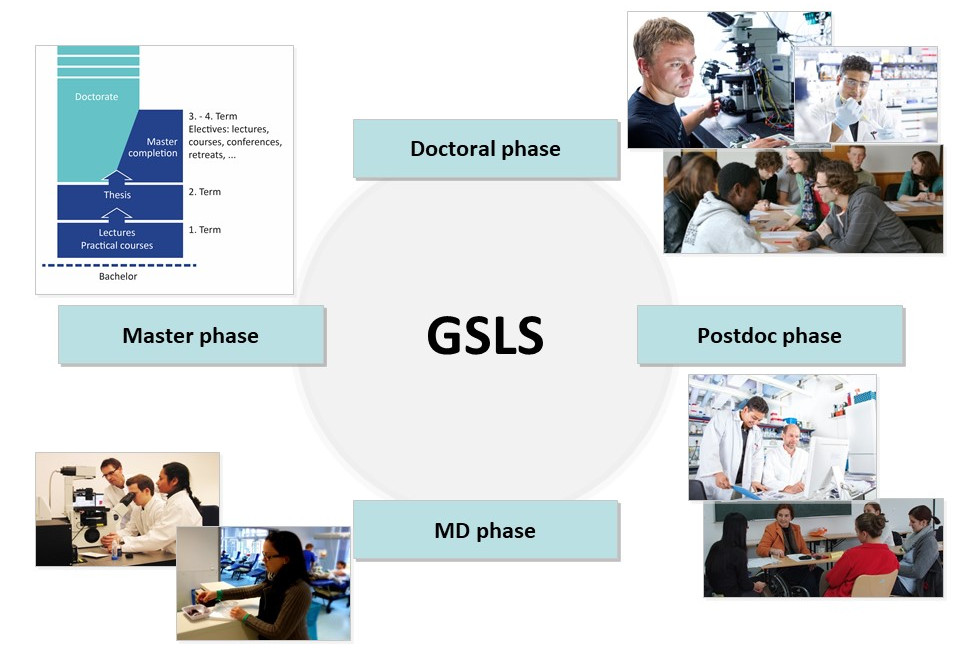Program
GSLS - Training Program
The training of scientists in academia is a stepwise process. Since the Bologna reform, students acquire the bachelor as their first university degree, proving proficiency within their chosen topic. In order to become a scientist, students continue their education at university towards a master degree - learning the essential skills required for original scientific research.
At the center of the scientific training is the doctoral phase. Guided and supervised by an experienced scientist and supportd by a thesis committee, doctoral researchers pursue in depth original research for the first time, working on a project of their own. This phase is crucial to the career of a prospective scientist. Doctoral researchers learn to design and perform experiments independently, to critically evaluate data and to communicate and discuss results. They also lay the foundation of their future careers, becoming experts in their chosen field. Nearly every career as a high profile scientist starts with numerous and/or high impact publications accomplished in the doctoral phase.

Figure: Career stages supported by GSLS: doctoral phase, medical doctorate, master's phase, postdoctoral phase
GSLS revolves around the doctoral phase and strives to offer the best training possible for young scientists to start their career. However, it also covers the career stages preceeding and following the doctoral phase as well as providing a medical doctorate (see figure above), to allow seemless transitions and high standards throughout.
The structured program we offer is based on three pillars:
- Supervision
Doctoral researchers are mentored by their thesis committee consisting of their primary doctoral adviser as well as two other principal investigators. The extended thesis committee offers a greater deal of expertise to the doctoral researcher and opens up easy opportunities for collaborations. - Training
Wide variety of course offers for transferable skills. Our doctoral researchers have many opportunities to acquire the abilities needed for a successful scientific career. With both scientific skills such as statistical analysis as well as soft skills such as CV writing or presentation rhetoric available, our doctoral researchers can tailor their training to their individual needs. - Certification
The Graduate School of Life Sciences certifies all activities of our doctoral researchers and offers a diploma supplement in addition to the doctoral certificate, in order to improve the CVs of our graduates to give them the best perspectives when applying for their first jobs.


